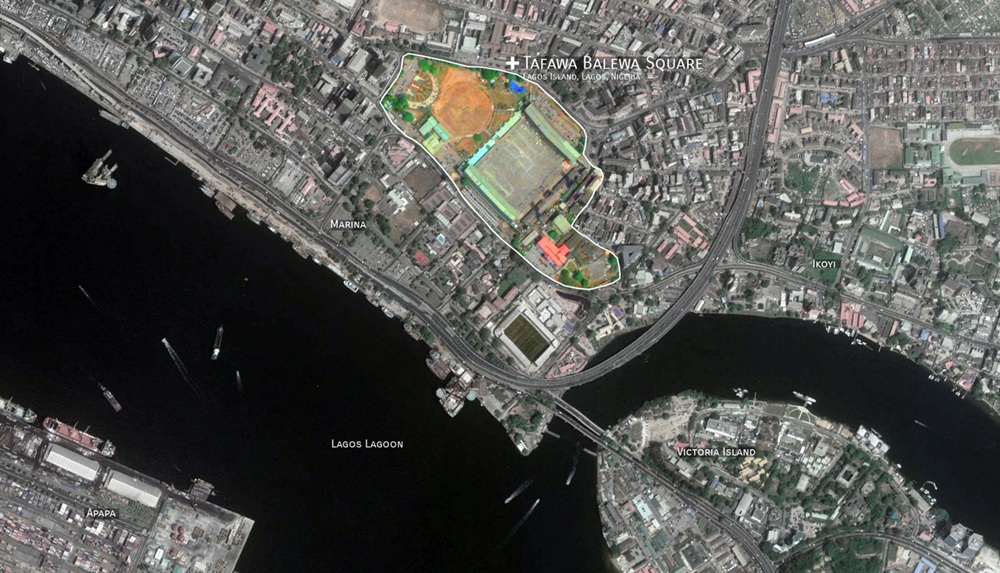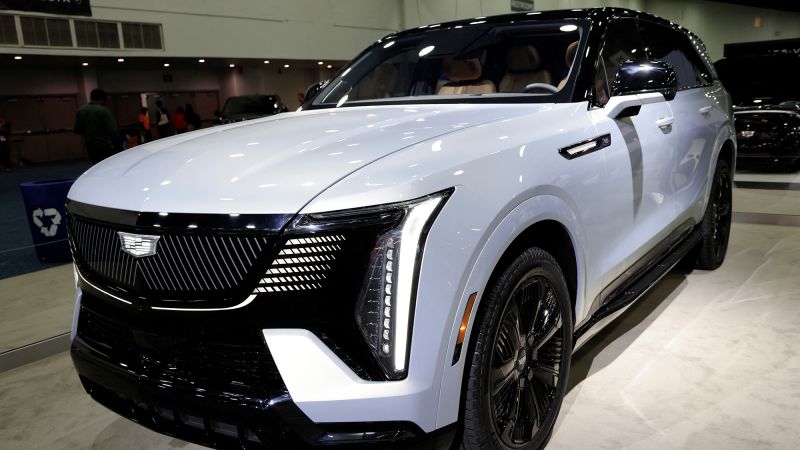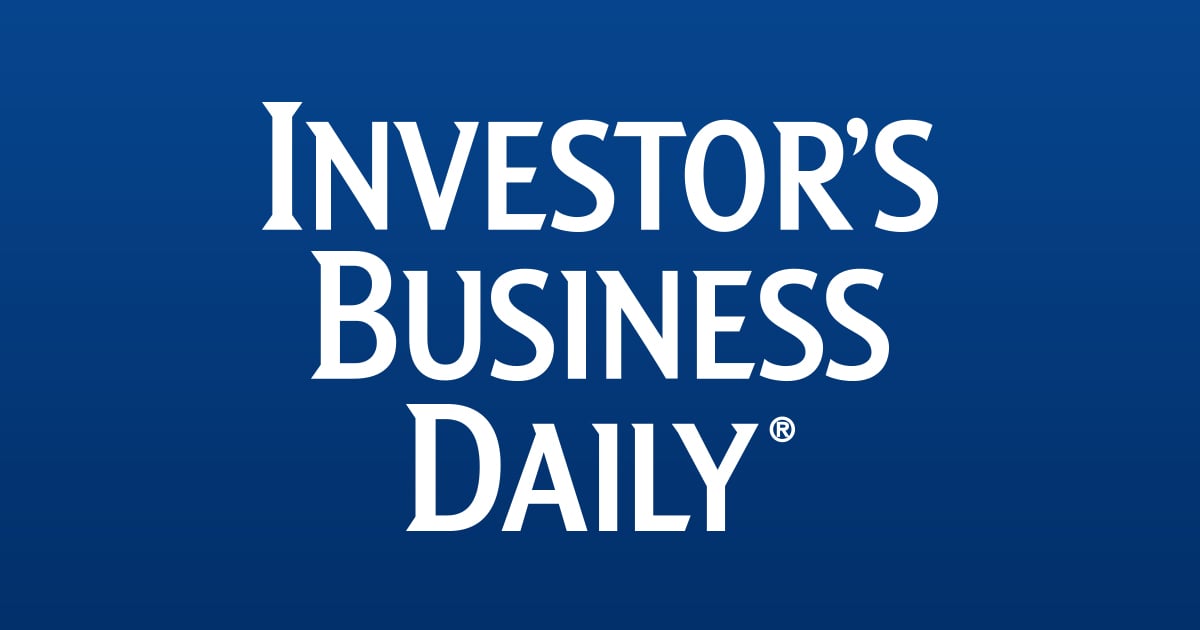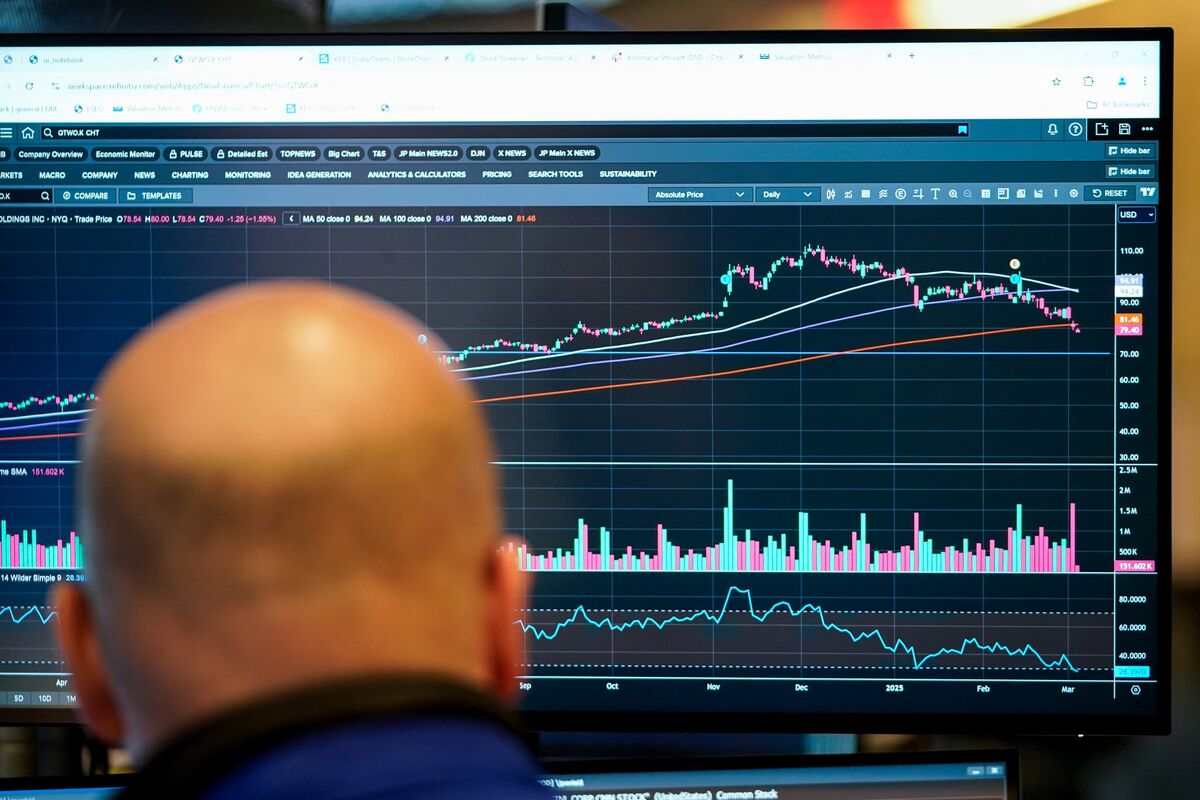Copyright thenationonlineng

By Oreoluwa Gift Adegbola Every Lagosian both loves and hates Lagos. The lived reality of the romance and pain of being Lagosian transcends socio-spatial binaries. A city at war with itself, and in open, silent rebellion against its nation.[1] Lagos is both a haven for the imprisoned in search of liberation, and a coffin for free spirits seeking expression. Every man for himself, and God for all of us. The city of Lagos, the Center of Excellence, Nigeria’s pride and shame. In a place where law is merely implied and selectively enforced, order is achieved only through organized chaos, and public infrastructure is utilized against the schemes of the government, the question ‘who is in control?’ becomes a curious one. The city of Lagos has expanded colossally since Nigeria gained its independence from the British in 1960, and few infrastructural legacies of the city’s colonial heritage remain. Tafawa Balewa Square, locally referred to by its acronym “TBS” is one of those sites. In its former life, the square was known as “The Lagos Racecourse”. A sports field which was built on land provided to colonial authorities by Oba Dosunmu. Dosunmu was the first Eleko of Eko, the traditional ruler of Lagos, to be appointed by the British consulate. [2] The Lagos Racecourse served as the site of British “Empire Day Parades” until Nigeria gained its independence in 1960. After which, the course, which had been a symbol and site for the enactment of colonial imperialism, was re-developed to celebrate the lowering of the Union Jack over Nigeria.[3] Tafawa Balewa Square was named after the first and only prime minister of Nigeria, Abubakar Tafawa Balewa. His rule, like the Square, transcended colonialism. Beginning with his appointment in 1957 and ending with his assassination in 1966.[4] The song of hope and aspiration, crushed by greed and corruption, tells the story of Lagos and Nigeria. The first republic which ended with the coup of January 1966, gave way to military dictatorship which persevered until the brief respite of the Second Republic that lasted four years, before another coup d’état returned Nigeria to military rule, which lasted until the dawn of the millennium.[5] At the directive of Yakubu Gowan, the military dictator who masterminded the countercoup that wrestled Nigeria from the insurgents who ended the first republic, the racecourse was re-built and renamed. The redeveloped Tafawa Balewa Square retained the façade of the original Racecourse. Post-colonial government in Nigeria has retained the extractive and oppressive qualities of colonial rule. Like the Square, deterioration and decay is hidden behind an exterior that aspires to become more than. The 26 story “independence building” which was constructed as part of the initial redevelopment of the Racecourse was also retained. Today, in addition to a 50,000-capacity plaza, TBS houses public amenities that include a shopping complex, a travel agency, restaurants, paid parking lots, and a major bus terminal.[6] The square hosts multiple state and private events throughout each year, including music concerts, traditional masquerade festivals, Independence Day parades and other political rallies. The firm responsible for the present rendition of Tafawa Balewa Square is Build Hope Services International Limited (BHS). In 2007, BHS was appointed by the Nigerian federal government, through the infrastructure concession regulatory commission (ICRC), during the tenure of President Olusegun Obasanjo, as the private concessionaire of Tafawa Balewa Square, following a competitive bidding process. The concession requirements as outlined by the ICRC were, to efficiently maintain the complex for a period of thirty years, and to develop additional infrastructures that would improve the use of the complex for the general public.[7] The CEO of BHS, Otunba Olu Adenodi, in an interview with The Nation newspaper given in 2015, expressed that prior to BHS taking over management of TBS, the square provided a haven for “street urchins, miscreants and hoodlums” who “used the site as a hideout to perpetrate various social vices”. This was his way of saying that the square was an uncommodified chill spot for public school students, young adults, and artisans during their work breaks. Despite the deteriorating infrastructure of the square seven years into their contract, Adenodi maintained that the firm had been upgrading the plaza’s facilities and providing jobs for Nigerians in the process. He described the company’s vision to transform the square into a “world class” city center, modelled after the Dubai trade center.[8] In 2014, through the federal ministry of industry, trade and investment, the federal government during the tenure of Goodluck E. Jonathan, commenced plans for the redevelopment of independence building, into a National Trade and International Business Centre (NTIBC). Following a competitive bid procurement process, The Infrastructure Bank plc (TIB), was appointed as transaction advisor. At the time of appointment, the managing director of TIB explained that the services provided by the bank would be broad and include the selection of a third party, who would provide technical and financial solutions through a public-private partnership. The aim being to transform the building into an ultra-modern, high rise, mixed used complex that will facilitate trade and investments.[9] Although the public private partnership model is not an uncommon approach to stewarding national assets in Nigeria, Tafawa Balewa Square presents quite a unique case study. Built on land that should undisputedly belong to the indigenes of Lagos, the Ownership of the land and all infrastructures subsequently developed on it, fell under federal jurisdiction at a time when Lagos was the capital of Nigeria. The relocation of the federal capital to Abuja in 1991, removed governance of the square, which was built on indigenous Eko land, from the direct influence of Lagos State, and relegated it to being an afterthought of a national monument, despite its historical pedigree. The indigenous people of Lagos to whom TBS holds the greatest cultural and social significance, have been forced to witness the steady deterioration of the complex over thirty years of neglect. Many of the original decorative and architectural components of the site have been lost to decay, including the iconic wrought iron gates which have been progressively replaced by steel bars under the stewardship of BHS. Loitering, hawking and petty trading, are the uses of the square outside of formally organized events. The mis-aligned interests of the people, state, and capital have on multiple occasions caused the future of Tafawa Balewa Square, to be very precarious.[10] Disinvestment in national infrastructures located in Lagos State by the federal government, has been prevalent since the relocation of Nigeria’s capital to Abuja, leading to the deterioration of the most treasured historical sites in Lagos, and often creating open disputes between the state and the federal government. The power of land trustee vested in the state government under the Nigerian constitution, provides leverage for negotiations between both parties in deciding the future of national buildings and complexes located in Lagos state.[11] Public-private partnerships often emerge as the compromise made between the Federal Government, who reduce sites such as Tafawa Balewa to assets on a spreadsheet that may be liquidated to mitigate the nations dire finances, and the State of Lagos whose urban aspirations are inspired by world-class ideals and aesthetics. Across the city from TBS, At the end of Ozumba Mbadiwe street, at the point where Victoria Island meets Lekki Phase 1, and on a longitudinal, in-between old Ikoyi and Oniru, a different kind of urban center is situated. The Admiralty Circle Plaza is a vehicular toll gate on Lekki-Epe express way that exacts a fare on motorists travelling on either side of the highway. The toll gate which is owned and operated by a public-private partnership between Lagos state and the Lekki Concession Company (LCC), was funded by the African Development Bank, and commenced operations in 2011. Its name “Admiralty Circle Plaza” was given by state planning officials, who aspired to create a landmark of what was at the time, one of the most capital-intensive urban re-development projects in the city of Lagos. However, despite political propaganda to romanticize and endear the project to Lagosians, the Lekki Toll gate has been a site of contestation and discord since it’s inauguration.[12] Resentment towards the toll gate stemmed from multiple factors, one being the initial lack of alternative routes for motorists who did not wish to pay a fare, making the toll a mandatory imposition on state residents for whom the expressway was a primary commute route. Further resentment stemmed from the intensification of vehicular traffic caused by the toll gate, in a part of the city that already had notoriously intense traffic congestions. [13] Another source of resentment was the notion that Lagos State, Nigeria’s economic capital, could not afford to pay the reported eighty-five million dollars that it cost to re-develop the expressway without imposing tolls on citizens to pay for the project, especially at a time when the state government was cracking down on civilian taxes.[14] A lesser but not insignificant cause for resentment was the perceived part ownership of the toll gate by Asiwaju Ahmed Bola Tinubu, former governor of Lagos state and current president of Nigeria. These allegations have been openly rejected by President Bola Tinubu himself, who publicly claimed to have no investment in the Lekki Concession Company.[15] The billboards splashed across all LCC operated toll gates, are acknowledged to be owned and operated by Seyi Tinubu, the son of President Tinubu, through is media company, Loatsad Promo media LTD.[16] However true or false the allegations may be, the real ownership of the Lekki Concession Company remained shrouded in mystery, and abstract claims of international partnerships, until the company was taken over by the state government in 2021.[17] A distrust has historically existed between the governed and the government in Lagos State, owing to a lack of transparency in affairs of governance, and the administration of the state budget. This is also owed to the propensity of the state government to utilize police and military force in imposing its ordinances on civilians, as was the case at the initial commencement of tolling at Admiralty Circle Plaza, leaving residents of the area who came out to protest the imposition, in need of urgent medical care.[18] Their lawsuits against the state, as with other lawsuits that were filed to contest tolling at the site, have gone unacknowledged and unaccounted for by the state.[19] To quell public resentment, and to address increased traffic congestion caused by the bottle neck created at the plaza, the Lekki Concession Company transitioned to digitized modes of payment in the form of prepaid toll cards or vehicle tags, an alternative to cash payments. These digital modes of payments ultimately became another mandatory imposition on all motorists passing through the toll gate, after their initial partial usage failed to decongest traffic.[20] Efforts made by LCC to manage public relations have had tepid effect on public sentiment, owing to the multiple toll fare increments that have been implemented since the launch of the toll gate.[21] In October 2020 while the city of Lagos was easing out of COVID-19 lockdown, The Admiralty circle plaza became the primary site of demonstration for the End SARS protests. End SARS was a decentralized civilian movement that was conceived on twitter, and birthed in Lagos State, championed by Gen Z and millennial Nigerians in protest of police brutality at the hands of the now defunct Special Anti-Robbery Squad (SARS), which was a specialized division of the Nigerian police department. The demands of the crowd funded movement to end SARS expanded to included justice for victims of police brutality, and improved salaries for policemen across the nation in order to circumvent their extortions and harassments of civilians. The End SARS movement found expression in the form of peaceful protests which happened across Nigeria and were echoed internationally.[22] In Lagos state, occupation of Admiralty Circle Plaza was employed as a tactic to gain the attention of the government. During the twelve-day occupation which transformed the toll road into the public plaza that it aspired to be, the public utilized the site for a range of activates including but not limited to sleeping, dining, communing, worshipping, workshopping, strategizing and of course, protesting. The highway became a church and a mosque, a canteen, a bedroom, a board room, an office and more.[23] In the evening of October 20th, 2020, all streetlights around the plaza were turned off. The digital billboard splashed across the toll gate which had depicted advertisements campaigning the cause of the movement, paid for by supporters of End SARS, were also turned off, plunging the plaza into darkness. The only light sources were the phones and candles held by protesters. Subsequently, the miliary arrived, opening fire on the peaceful protesters, many of whom were on their knees singing the national anthem and waving Nigeria’s flag.[24] Following the massacre, the outraged public demanded questions. The federal government commented that reports of shootings and killings were fake news. The state government said that it did not have the authority to deploy the Nigerian military. The Lekki Concession Company maintained that it turned off its billboards and CCTV cameras at the instruction of the state government.[25] The state government did not comment on this but staged a walkthrough of the plaza where a CCVT camera alleged to have evidence on it, was conveniently discovered three weeks after the toll gates had been burnt down.[26] Under growing demands for comment, the President at the time, Muhamad Buhari, a former military dictator of Nigeria from 1983-1985, came out of reclusion to acknowledge the allegations in an infamous speech that left Nigerians speechless.[27] Tafawa Balewa Square and Admiralty Circle Plaza are separated by regimes, and while there are obvious differences between both sites, there are also significant parallels. As discussed, public space cannot be separated from politics in Lagos State. One site, born under colonialism and nurtured by dictatorship, still endures as place of social and cultural intersection. In a city where public conduct is prescribed and regulated by the government, the act of loitering itself becomes a form of protest. The other site, conceived with aspirations for publicness far grander what it’s infrastructure can accommodate, becomes a crude expression of the relationship between the state and its public. The choreography of payment and extraction becomes an event. The extent to which the government is willing to permit chaos or disruption to either site before intervening, corresponds directly to the impact of such activities on the state’s revenue. The loiterers may make use of TBS, if their activities do not disrupt paid events. The people may make use of Admiralty circle plaza if their activities do not disrupt tolling. Excessive deviation from the status quo elicits a firm reminder that democracy is only theoretical. This is of course a critique of the plaza which is designed solely for vehicles and not for people, giving the plaza a few things to learn from TBS, accessible for informal recreational and commercial use, however criminalized, and formal events that are in some cases freely accessible to the public and in most, accessible for a fee. Oréoluwa is a guest columnist at the Nation Newspaper. She holds a Bachelor of Architecture (B.Arch) from the Pratt Institute School of Architecture and a Master of Science in Architecture and Urban Design (STEM-designated) from Columbia University’s Graduate School of Architecture, Planning and Preservation (GSAPP). She is a Project Management Professional (PMP), a Certified Passive House Designer (CPHD), and a LEED Accredited Professional (LEED AP) and a WELL Accredited Professional (WELL AP). Her professional experiences span three continents and a broad range of scales—from detailed interior and building design, to complex urban and regional planning. Oréoluwa has worked on a diverse array of projects in both the public and private sectors, including commercial, educational, industrial, hospitality and automotive developments. A published researcher and educator, Oréoluwa has taught as an Adjunct Associate at Columbia University’s Graduate School of Architecture, where she is also a regular guest critic. Additionally, she has served as a juror and critic for various architectural design competitions. 1. “#endsars Movement: From Twitter to Nigerian Streets.” Amnesty International, July 29, 2021. https://www.amnesty.org/en/latest/campaigns/2021/02/nigeria-end-impunity-for-police-violence-by-sars-endsars/. 2. Anaba, Innocent. “Lekki Toll Gate: Residents Sue Lagos Govt, Police, LCC, Others over Alleged Beating.” Vanguard News, January 3, 2012. https://www.vanguardngr.com/2012/01/lekki-toll-gate-residents-sue-lagos-govt-police-lcc-others-over-alleged-beating/. 3. Augoye, Jayne. Premium Times – Nigeria leading newspaper for News, investigations. Accessed May 8, 2023. https://www.premiumtimesng.com/regional/ssouth-west/256956-lcc-increase-lekki-ikoyi-toll-fares.html. 4. Chocomilo, Sodiq Adewale. “I Have No Investment in Lekki Tollgate, Says Tinubu.” WITHIN NIGERIA, October 26, 2020. https://www.withinnigeria.com/2020/10/26/i-have-no-investment-in-lekki-tollgate-says-tinubu/. 5. “Christians and Muslims Pray Together at Lekki Toll Gate – Video.” Christians and Muslims pray together at Lekki Toll Gate – Video – Opera News. Accessed May 9, 2023. https://ng.opera.news/ng/en/religion/73c06dfeff153586ef17fb016ad92b8d. 6. Debe, Idonosan, and Rosemary Opara. “‘prove That Seyi Tinubu Does Not Own Lekki Toll Gate’ – Bode George.” The Lagos Today, February 19, 2021. https://thelagostoday.com/prove-that-seyi-tinubu-does-not-own-lekki-toll-gate-bode-george/. 7. Elumoye, Deji, Chuks Okocha, Adedayo Akinwale, and Emmanuel Addeh. “Buhari in Deafening Silence over Lekki Shootings, Urges End to Protests.” THISDAYLIVE Buhari in Deafening Silence over Lekki Shootings Urges End to Protests Comments. Accessed May 9, 2023. https://www.thisdaylive.com/index.php/2020/10/23/buhari-in-deafening-silence-over-lekki-shootings-urges-end-to-protests/. 8. Erezi, Dennis. “Lagos Judicial Panel Member Tackles Fashola over Camera Discovery at Lekki Toll Gate.” The Guardian Nigeria News – Nigeria and World News, October 26, 2020. https://guardian.ng/news/lagos-judicial-panel-member-tackles-fashola-over-camera-discovery-at-lekki-toll-gate/. 9. Eribake, Akintayo. “Tension as Lagos Govt Insists on Toll Collection.” Vanguard News, December 16, 2011. https://www.vanguardngr.com/2011/12/tension-as-lagos-govt-insists-on-toll-collection/. 10. “How We Were Brutalised at Tollgate –Protesters.” Daily Post Nigeria, December 19, 2011. https://dailypost.ng/2011/12/19/how-we-were-brutalised-at-tollgate-%E2%80%93protesters/. 11. Ifeoluwa Akandea, Edikan M. Okonb, Oke Teminijesuc, Atirolaoluwa D. Olanrewajud , “Evaluation of Building Maintenance Strategies in Public Buildings: A Case of Onikan Area of Lagos State Nigeria,” International Journal of Research Publication and Reviews Vol 2, no 11 (2021), pp 20-29, www.ijrpr.com ISSN 2582-7421 12. Inyang, Ifreke. “Lekki Toll Gate Shooting: Seyi Tinubu’s Firm Explains Why Billboard Lights Were Switched Off.” Daily Post Nigeria, October 21, 2020. https://dailypost.ng/2020/10/21/lekki-toll-gate-shooting-seyi-tinubus-firm-explains-why-billboard-lights-were-switched-off/. 13. LAURENT FOURCHARD, “Lagos, Koolhaas and Partisan Politics in Nigeria,” International Journal of Urban and Regional Research 35, no. 1 (2010): pp. 40-56, https://doi.org/10.1111/j.1468-2427.2010.00938.x, 40-41. 14. “Lekki Expressway Toll Plaza, Lagosians Suffer 3 Months after Commencement of Shady Concession.” Sahara Reporters. Accessed May 8, 2023. https://saharareporters.com/2012/03/15/lekki-expressway-toll-plaza-lagosians-suffer-3-months-after-commencement-shady-concession. 15. McKenna, Amy. “Sir Abubakar Tafawa Balewa.” Encyclopædia Britannica. Accessed May 7, 2023. https://www.britannica.com/biography/Abubakar-Tafawa-Balewa. 16. Nan. “Lagos Assembly Approves Full Takeover of Lekki Concession Company.” The Guardian Nigeria News – Nigeria and World News, August 9, 2021. https://guardian.ng/news/lagos-assembly-approves-full-takeover-of-lekki-concession-company/. 17. Natio, The. “Lagos’ll Reclaim TBS, Says Fashola.” The Nation Newspaper, September 23, 2015. https://thenationonlineng.net/lagosll-reclaim-tbs-says-fashola/. 18. “Nigeria: The Lekki Toll Gate Massacre – New Investigative Timeline.” Amnesty International, September 6, 2022. https://www.amnesty.org/en/latest/news/2020/10/nigeria-the-lekki-toll-gate-massacre-new-investigative-timeline/. 19. Nwelih, Dominic. “‘“why We Want Lekki-Epe Expressway Concession Deal Reviewed.”’” Sahara Reporters. Accessed May 8, 2023. https://saharareporters.com/2010/09/01/%E2%80%98%E2%80%99why-we-want-lekki-epe-expressway-concession-deal-reviewed%E2%80%99%E2%80%99. 20. Oghifo, Bennett. Nigeria: Toll collection begins on Lekki Road – allafrica.com. Accessed May 7, 2023. https://allafrica.com/stories/201012160351.html. 21. Ogundeji, Josephine. “Tafawa Balewa Square: Years after Concession, World-Class Tourist Site Dream Fades.” Head Topics, March 23, 2023. https://headtopics.com/ng/tafawa-balewa-square-years-after-concession-world-class-tourist-site-dream-fades-37024735. 22. Ogundeji, Josephine. “Tafawa Balewa Square: Years after Concession, World-Class Tourist Site Dream Fades.” Punch Newspapers, March 22, 2023. https://punchng.com/tafawa-balewa-square-years-after-concession-world-class-tourist-site-dream-fades/?utm_source=headtopics&utm_medium=news&utm_campaign=2023-03-23. 23. Ojo, Jide. “June 12, Nass and Nigeria’s Fourth Republic.” Punch Newspapers, June 12, 2019. https://punchng.com/june-12-nass-and-nigerias-fourth-republic/. 24. Report, Agency. “Cash Payment to End at Lekki Toll Plaza -Concessionaire.” Punch Newspapers, December 3, 2019. https://punchng.com/no-more-cash-payment-at-lekki-toll-plaza-concessionaire/. 25. Robert Sydney Smith, The Lagos Consulate, 1851-1861 (Berkeley: University of California Press, 2022). 26. “Tafawa Balewa Square (TBS).” Nigeria ICRC PPP Platform. Accessed May 7, 2023. https://ppp.icrc.gov.ng/project/176/tafawa-balewa-square-tbs. 27. “‘Tafawa Balewa Square Leased, Not Sold.’” The Nation Newspaper, June 8, 2015 https://thenationonlineng.net/tafawa-balewa-square-leased-not-sold/. [1] LAURENT FOURCHARD, “Lagos, Koolhaas and Partisan Politics in Nigeria,” International Journal of Urban and Regional Research 35, no. 1 (2010): pp. 40-56, https://doi.org/10.1111/j.1468-2427.2010.00938.x, 40-41. [2] Robert Sydney Smith, The Lagos Consulate, 1851-1861 (Berkeley: University of California Press, 2022), 55. [3] Ifeoluwa Akandea, Edikan M. Okonb, Oke Teminijesuc, Atirolaoluwa D. Olanrewajud , “Evaluation of Building Maintenance Strategies in Public Buildings: A Case of Onikan Area of Lagos State Nigeria,” International Journal of Research Publication and Reviews Vol 2, no 11 (2021), pp 20-29, www.ijrpr.com ISSN 2582-7421 [4] McKenna, Amy. “Sir Abubakar Tafawa Balewa.” Encyclopædia Britannica. Encyclopædia Britannica, inc. Accessed May 7, 2023. https://www.britannica.com/biography/Abubakar-Tafawa-Balewa. [5] Ojo, Jide. “June 12, Nass and Nigeria’s Fourth Republic.” Punch Newspapers, June 12, 2019. https://punchng.com/june-12-nass-and-nigerias-fourth-republic/. [6] Ifeoluwa Akandea, Edikan M. Okonb, Oke Teminijesuc, Atirolaoluwa D. Olanrewajud , “Evaluation of Building Maintenance Strategies in Public Buildings: A Case of Onikan Area of Lagos State Nigeria,” International Journal of Research Publication and Reviews Vol 2, no 11 (2021), pp 20-29, www.ijrpr.com ISSN 2582-7421 [7] “Tafawa Balewa Square (TBS).” Nigeria ICRC PPP Platform. Accessed May 7, 2023. https://ppp.icrc.gov.ng/project/176/tafawa-balewa-square-tbs. [8] “’Tafawa Balewa Square Leased, Not Sold’.” The Nation Newspaper, June 8, 2015. https://thenationonlineng.net/tafawa-balewa-square-leased-not-sold/. [9] Eribake, Akintayo. “Independence Building: FG Appoints Tib Advisor.” Vanguard News. Vanguard Media limited, October 30, 2014. https://www.vanguardngr.com/2014/10/independence-building-fg-appoints-tib-advisor/. [10] Ogundeji, Josephine. “Tafawa Balewa Square: Years after Concession, World-Class Tourist Site Dream Fades.” Punch Newspapers, March 22, 2023. https://punchng.com/tafawa-balewa-square-years-after-concession-world-class-tourist-site-dream-fades/?utm_source=headtopics&utm_medium=news&utm_campaign=2023-03-23. [11] Natio, The. “Lagos’ll Reclaim TBS, Says Fashola.” The Nation Newspaper, September 23, 2015. https://thenationonlineng.net/lagosll-reclaim-tbs-says-fashola/. [12]Eribake, Akintayo. “Tension as Lagos Govt Insists on Toll Collection.” Vanguard News, December 16, 2011. https://www.vanguardngr.com/2011/12/tension-as-lagos-govt-insists-on-toll-collection/. [13] “Lekki Expressway Toll Plaza, Lagosians Suffer 3 Months after Commencement of Shady Concession.” Sahara Reporters. Accessed May 8, 2023. https://saharareporters.com/2012/03/15/lekki-expressway-toll-plaza-lagosians-suffer-3-months-after-commencement-shady-concession. [14] Nwelih, Dominic. “”Why We Want Lekki-Epe Expressway Concession Deal Reviewed”.” Sahara Reporters. Accessed May 8, 2023. https://saharareporters.com/2010/09/01/‘’why-we-want-lekki-epe-expressway-concession-deal-reviewed’’ [15] Chocomilo, Sodiq Adewale. “I Have No Investment in Lekki Tollgate, Says Tinubu.” WITHIN NIGERIA, October 26, 2020. https://www.withinnigeria.com/2020/10/26/i-have-no-investment-in-lekki-tollgate-says-tinubu/. [16] Debe, Idonosan, and Rosemary Opara. “‘prove That Seyi Tinubu Does Not Own Lekki Toll Gate’ – Bode George.” The Lagos Today, February 19, 2021. https://thelagostoday.com/prove-that-seyi-tinubu-does-not-own-lekki-toll-gate-bode-george/. [17] Nan. “Lagos Assembly Approves Full Takeover of Lekki Concession Company.” The Guardian Nigeria News – Nigeria and World News, August 9, 2021. https://guardian.ng/news/lagos-assembly-approves-full-takeover-of-lekki-concession-company/. [18] “How We Were Brutalised at Tollgate –Protesters.” Daily Post Nigeria, December 19, 2011. https://dailypost.ng/2011/12/19/how-we-were-brutalised-at-tollgate-–protesters/ [19] Anaba, Innocent. “Lekki Toll Gate: Residents Sue Lagos Govt, Police, LCC, Others over Alleged Beating.” Vanguard News, January 3, 2012. https://www.vanguardngr.com/2012/01/lekki-toll-gate-residents-sue-lagos-govt-police-lcc-others-over-alleged-beating/. [20] Report, Agency. “Cash Payment to End at Lekki Toll Plaza -Concessionaire.” Punch Newspapers, December 3, 2019. https://punchng.com/no-more-cash-payment-at-lekki-toll-plaza-concessionaire/. [21] Augoye, Jayne. Premium Times – Nigeria leading newspaper for News, investigations. Accessed May 8, 2023. https://www.premiumtimesng.com/regional/ssouth-west/256956-lcc-increase-lekki-ikoyi-toll-fares.html. [22] “#endsars Movement: From Twitter to Nigerian Streets.” Amnesty International, July 29, 2021. https://www.amnesty.org/en/latest/campaigns/2021/02/nigeria-end-impunity-for-police-violence-by-sars-endsars/. [23] “Christians and Muslims Pray Together at Lekki Toll Gate – Video.” Christians and Muslims pray together at Lekki Toll Gate – Video – Opera News. Accessed May 9, 2023. https://ng.opera.news/ng/en/religion/73c06dfeff153586ef17fb016ad92b8d. [24] “Nigeria: The Lekki Toll Gate Massacre – New Investigative Timeline.” Amnesty International, September 6, 2022. https://www.amnesty.org/en/latest/news/2020/10/nigeria-the-lekki-toll-gate-massacre-new-investigative-timeline/. [25] Inyang, Ifreke. “Lekki Toll Gate Shooting: Seyi Tinubu’s Firm Explains Why Billboard Lights Were Switched Off.” Daily Post Nigeria, October 21, 2020. https://dailypost.ng/2020/10/21/lekki-toll-gate-shooting-seyi-tinubus-firm-explains-why-billboard-lights-were-switched-off/. [26] Erezi, Dennis. “Lagos Judicial Panel Member Tackles Fashola over Camera Discovery at Lekki Toll Gate.” The Guardian Nigeria News – Nigeria and World News, October 26, 2020. https://guardian.ng/news/lagos-judicial-panel-member-tackles-fashola-over-camera-discovery-at-lekki-toll-gate/. [27] Elumoye, Deji, Chuks Okocha, Adedayo Akinwale, and Emmanuel Addeh. “Buhari in Deafening Silence over Lekki Shootings, Urges End to Protests.” THISDAYLIVE Buhari in Deafening Silence over Lekki Shootings Urges End to Protests Comments. Accessed May 9, 2023. https://www.thisdaylive.com/index.php/2020/10/23/buhari-in-deafening-silence-over-lekki-shootings-urges-end-to-protests/.



